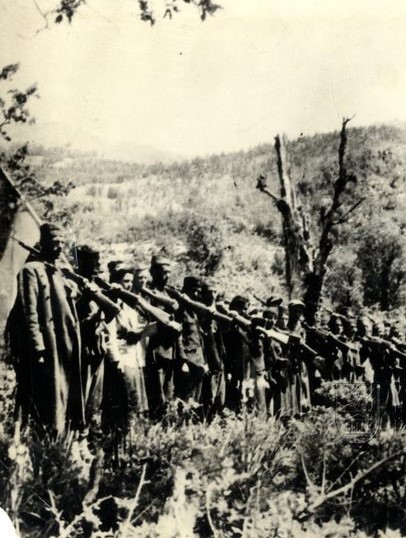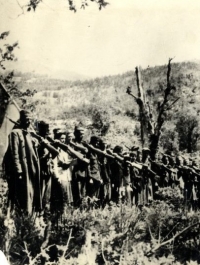A Croatian Czech fought the Germans in the Yugoslav resistance. They did not get him even when he was sick with typhoid

Stáhnout obrázek
Miroslav Vostřel was born on the 9th of February in 1921 in Kupinec, a village about 25 kilometres away from Zagreb, Croatia. His ancestors were from around Budislav in Eas Bohemia and they came to Croatia to seek cheaper land, as did many other Czechs at that time. They were capable farmers but despite the fact, they were troubled by debts, which is why they moved to a farm in Čemelice, not far from Virovitica. Miroslav expected that he would continue farming, as was the tradition of his family but the war was looming and it changed his fate considerably. In April 1941, the Kingdom of Yugoslavia was invaded by the armies of the Axis, namely of Germany, Italy and Bulgaria. The Daruvar Czechs found themselves under the rule of the fascist and nationalist régime of the so-calles Ustashe who started a mass persecution of Serbs and Jews. The Czechs became an unwelcome group as well. In Yugoslavia, a Communist-leaning resistance movement soon formed under the leadership of Josip Broz Tito. Miroslav Vostřel joined them at the very beginning. At first, he helped with printing pamphlets but the Ustashe police soon found out and towards the end of 1942, they intended to arrest him. He escaped and went into hiding in the woods where he joined the resistance. At first, he fought with the 17th brigade where he served as a political advisor’s (comissar) aide, later, he joined the Czechoslovak batallion and then the brigade of Jan Žižka of Trocnov. As a chief personnel officer, he was in charge of drafts froom the Czech villages. After the unit was disssolved in 1945, he became chief personnel officer of a division in the Yugoslav army. At this position, he learneda bout the events in Bleiburg in Austria which happened around the 15th of May in 1945; there, the resistance killed tens of Ustashe refugees who wanted to surrender to the Western armies.After the end of the war, he continued his service in the Yugoslav army. His younger brother foiught in the resistance during the WWII as well, after the war, he became a diplomat. In 2019, Miroslav Vostřel lived in Zagreb.
